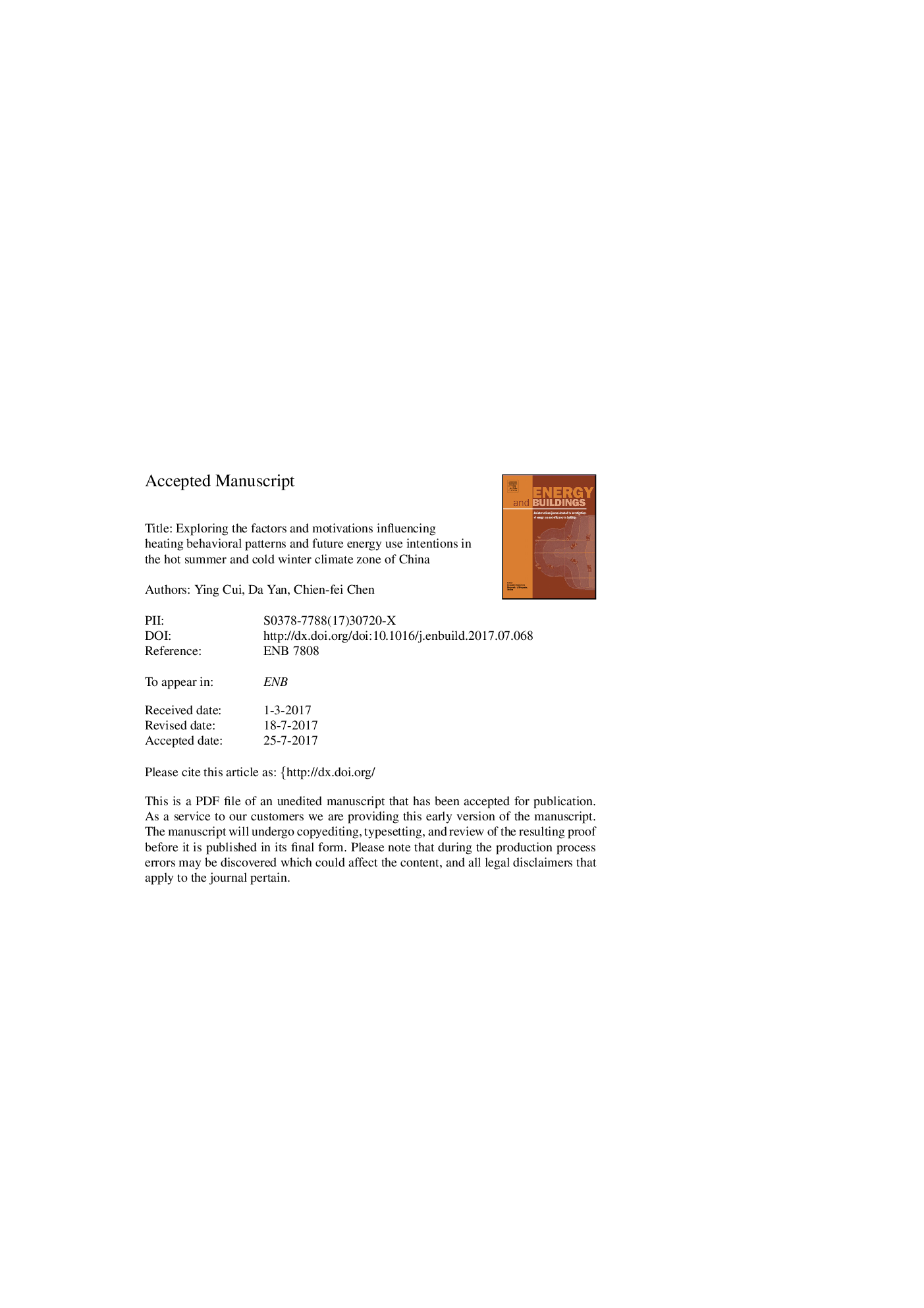| Article ID | Journal | Published Year | Pages | File Type |
|---|---|---|---|---|
| 4918974 | Energy and Buildings | 2017 | 50 Pages |
Abstract
The hot summer and cold winter zone (HSCW) plays a significant role in residential energy consumption in China because of climate, policy, and social-economic factors. Accordingly, occupant heating behaviors and associated social-psychological factors are essential elements in understanding energy consumption. This study presents a new investigation on the demographic factors, building characteristics, and social-psychological motivations influencing current heating patterns and future heating intentions among 904 residents in the HSCW zone in China. Most residents surveyed selected the city-scale central-heating system as their future heating pattern, which might lead to a high level of energy consumption. Among demographics, family income was the main factor influencing residents' current heating patterns, followed by number of children and building age. Additionally, thermal comfort was one of the most frequent motivations for adopting specific heating patterns in our sample. Although residents were generally concerned about the environmental impacts of energy use, they could have been unaware that their current and future heating patterns could cause high levels of energy consumption. This study provides multifaceted insight in occupant research by investigating the link among occupant heating patterns, climate zone, and behavioral motivations, which should be considered by building designers, policymakers, engineers, and energy educators.
Keywords
Related Topics
Physical Sciences and Engineering
Energy
Renewable Energy, Sustainability and the Environment
Authors
Ying Cui, Da Yan, Chien-fei Chen,
